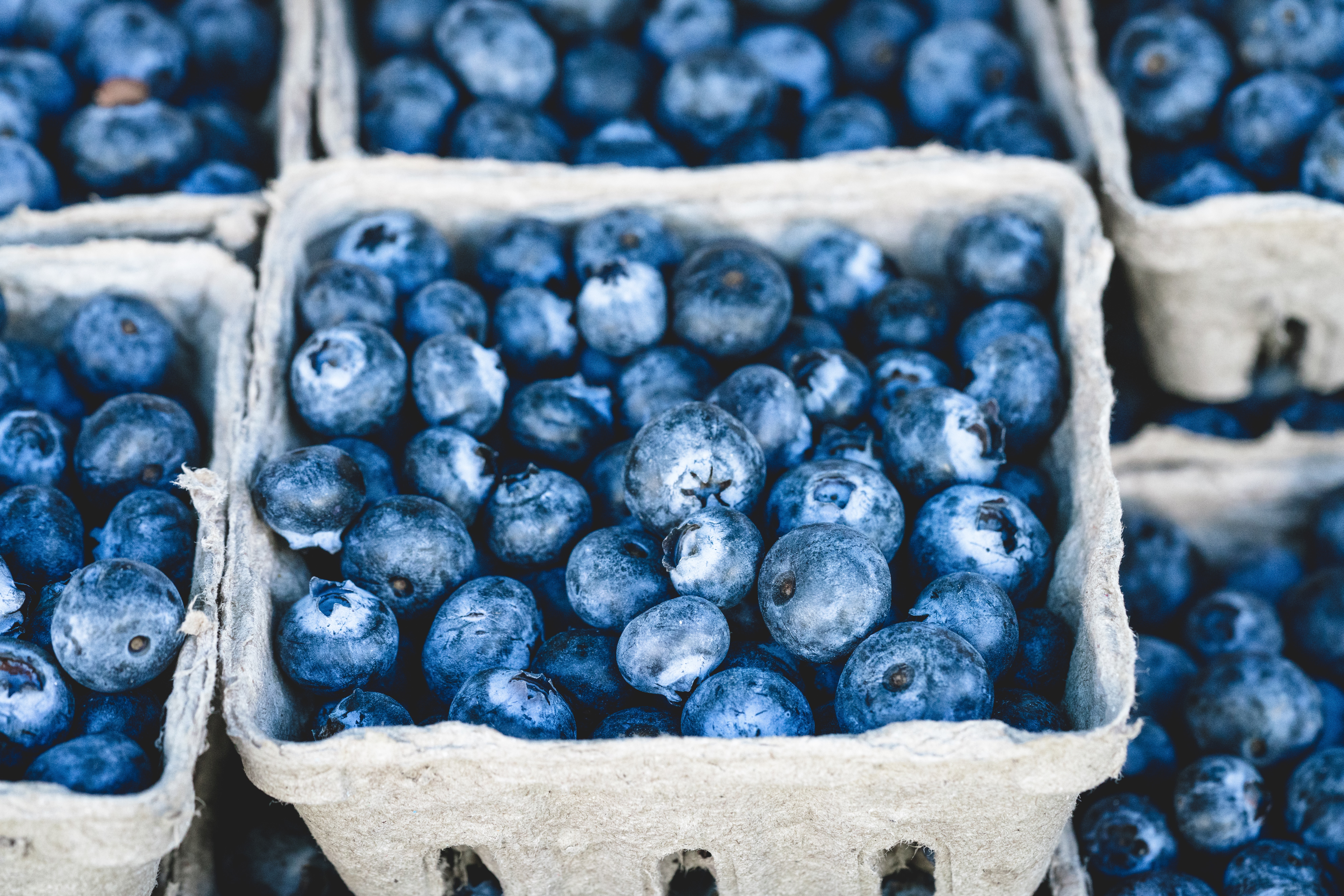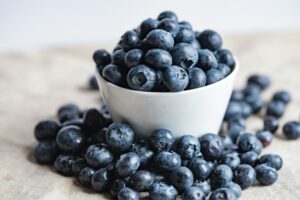
There are a plethora of superstar foods in Mother Nature’s medicine cabinet, but few come close to the nutritional power of the blueberry. Botanically known as Vaccinium corybosum, blueberries come from shrubs native to North America. They often score at the very top of the list when it comes to high-antioxidant foods — above all other common fruits and vegetables!
Additionally, some healers and intuitives have spoken of blueberries, especially wild Maine blueberries, as “the resurrection food.” This makes sense, because they are small and mighty and survive and grow in cold, harsh circumstances. Ingesting them into your body and energy system infuses a bit of that resurrection power and energy into you! This is especially helpful if you’ve been through a hard time or are amidst an awakening process, which can be grueling and intense. Inherent in that rebirth process is a cleansing of energies, experiences, emotions, beliefs, and people that no longer serve you. So supportive practices and foods like blueberries are helpful. Everyone, but especially empaths and HSPs (highly sensitive people), can use this extra fortification of their immune system and inner resources.
Also, humanity as a whole is resurrecting right now after several years of especially intense hardship and division. It’s been a global death, rebirth, and reset cycle, including much suffering. Read on for more information on 4 specific health benefits you’ll reap from incorporating these tiny yet hearty berries into your diet. Plus, you’ll get a lovely burst of flavor!
The blueberry’s main claim to fame is its extraordinarily high antioxidant level. Antioxidants are natural substances thought to ward off disease and free radicals. They prevent or delay cell damage in the body.
Blueberries have shown higher levels than other antioxidant-rich foods such as nuts and dark chocolate, and other berries such strawberries and blackberries. They consistently test high in anthocyanidins specifically, which are powerful plant pigments (also called flavonoids).
The authors of a 2012 study concluded that blueberries could be used medicinally as a “functional food of benefit to human health” and public health as a result of their strong antioxidant components. The vibrant blue skin of the blueberry may hold the majority of its antioxidants.
The cardiovascular support from consuming blueberries is staggering. Several studies suggest blood pressure-lowering effects, like a 2015 study showing significant decreases in high blood pressure and pulse levels for postmenopausal women with hypertension who ate freeze-dried blueberry powder every day for eight weeks.
The anthocyanidins in blueberries may be key players in heart disease prevention. Eating them may even protect obese men and women with metabolic syndrome from having symptoms, as well as heart problems. They have also shown some ability to reduce DNA damage, like in men at risk for cardiovascular disease.

Blueberries are the smart choice! Women ages 70 and older who ate blueberries over the course of an impressive 32 years had slower rates of cognitive decline. And blueberry supplements may specifically improve memory in older adults with early signs of dementia. A remarkable side effect of blueberry consumption in this study was a reduction in depression symptoms and blood sugar levels.
Some other exciting (but preliminary) research indicates that blueberries may be able to ease post-traumatic stress disorder (PTSD) symptoms such as anxiety.
The “other” brain may benefit from blueberries as well. These berries may have powerful healing effects for the gut, which is sometimes called “the second brain” because there’s a strong biological and emotional relationship between it and how we think and feel.
In a 2013 study, adding wild Maine blueberries to the diet resulted in an almost eight-fold increase in the amount of good gut and colon bacteria. While the research was done in an animal model, it suggests that comparable effects could occur in humans.
Research in 2016, in the journal Molecules, confirms this. Eighteen healthy men who consumed wild blueberries for 30 days had significant positive changes in their gut microbiota. The researchers concluded that antioxidants from blueberries are “absorbed and extensively metabolized.” This is great news, as it shows that our bodies can assimilate their nutrients easily.
Furthermore, eating blueberries after a meal might help balance blood sugar and offer protection against oxidative stress, or wear and tear on the body.
One-half cup serving of blueberries contains roughly:
Blueberries are nutrient-dense but have very few calories and practically no protein. For this reason, consider pairing your blueberries with high-protein foods or drinks. Try them sprinkled over Greek yogurt, mixed into some steel-cut oats with cinnamon, or throw a handful into your morning smoothie. You can also cook and bake with them.

Fresh blueberries are ideal, but frozen berries work too, and may be a longer lasting, more economical option. There are many varieties of blueberries, and while all are healthy, wild Maine blueberries in particular show potent health effects. If you live far from Maine (like most of us), you can still purchase them frozen (organic or conventional) at the grocery store.
When fresh, blueberries should be firm and deep blue in color. Regardless of where you live, you can stock up on frozen berries when there’s a sale at the store any time of year. If frozen, keep them in the freezer and let thaw a bit on the counter before enjoying. If fresh, when you get home first check for any mold or leaking (and remove as needed). Then put them right into the fridge in their original packaging or in an airtight container with a dry paper towel. Don’t use the crisper drawer as the air circulation isn’t as good in there. It’s best to wait to wash them until right before eating. Blueberries typically last in the fridge for up to 14 days.
There are a lot of reasons to add the versatile, nutritious blueberry to your diet. If you live in New England in the United States and it’s summertime, grab some local, wild blueberries from the farmer’s market — or go blueberry picking as in the classic children’s book, “Blueberries with Sal” (one of my favorites as a little girl)!
Eating blueberries is also a great way to cope with sugar cravings and improve insulin sensitivity. Their natural sweetness can provide a satisfying replacement to processed treats, which is especially important for people who have or are at risk for type 2 diabetes. Feel free to contact me at erin@centeredone.com if you need help with your nutritional process. We can discuss getting you back on track as well as clearing any energy drains.
© Copyright Centered One by Erin, All rights reserved.
Photos by
veeterzy on Unsplash